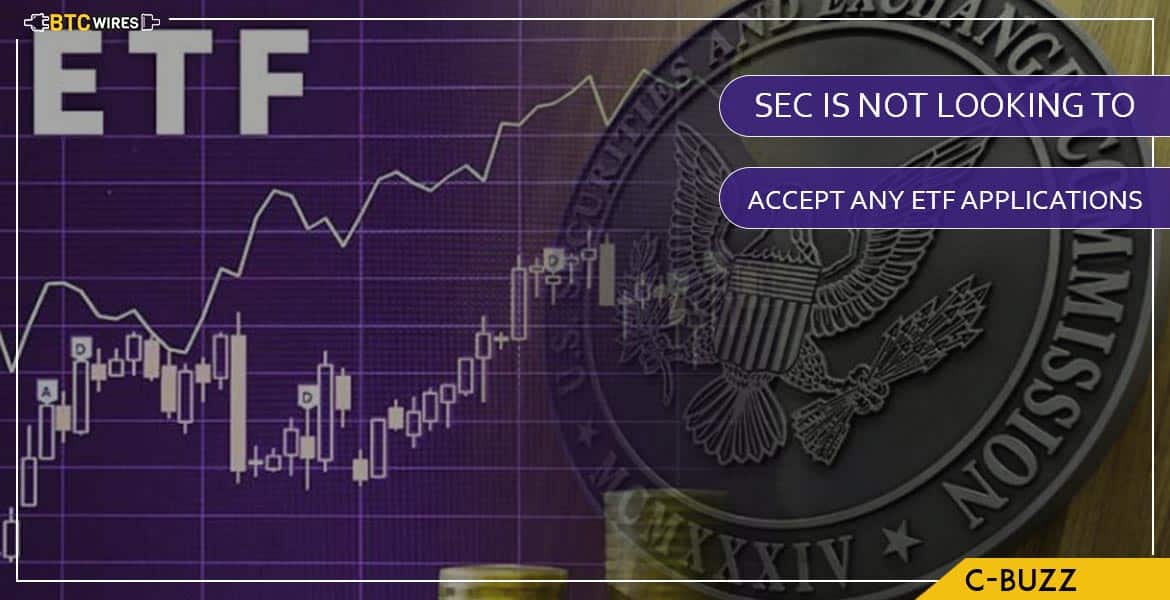BTC Wires: 9 applications from 3 applicants for listing Bitcoin

BTC Wires: 9 applications from 3 applicants for listing Bitcoin exchange-traded funds (ETFs) have been denied approval by US Securities and Exchanges Commission (SEC) according to the three new orders that were released by the SEC on 22nd August, 2018.
The deadline was 23rd August for BTC ETFs submitted by ProShares in collaboration with the New York Stock Exchange (NYSE). In addition, SEC has denied approval to seven more new ETFs proposed besides the couple from ProShares. Justifying these rejections, the SEC remarked that the Commission is not giving its seal of approval to these proposals because the Exchange Act has not been adhered to correctly. It further added that,
“The Commission’s Rules of Practice to demonstrate that its proposal is consistent with the requirements of the Exchange Act Section 6(b)(5), in particular the requirement that a national securities exchange’s rules be designed to prevent fraudulent and manipulative acts and practices.”
The SEC has also reasserted that it will be strongly resisting inadequate measures for controlling price manipulation in an underserved market of BTC derivatives. For the pair from ProShares, the SEC has said that it was disapproved because the Exchange had submitted no proof for the ample size of future bitcoin markets. This failure turned out to be a crucial determinant for the approval or the lack thereof. In addition, the Exchange has not given any statement about how it plans to prevent fraudulence and manipulation.
Further, a registration statement released by the SEC in March of this year said that the fact that the ProShares Funds had not shown an intention to continue to hold Bitcoin Futures Contracts via expiration. Instead they had wanted to close or “roll” the position they had. This made the SEC believe that there was a great deal of risk for these ETFs for this reason, in addition to the fact that the spot and derivative markets were very volatile and had a low level of liquidity.
However, the agency also remarked that the rejection was not an indication of whether or not the particular technology was low in valuation or potential.

